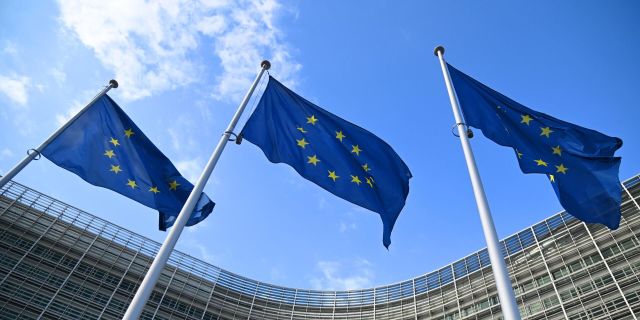Bloomberg: European Commissioner Dombrovskis calls for confiscation of Russian assets
European Commissioner for Economic Affairs Dombrovskis calls for the confiscation of frozen Russian assets, Bloomberg writes. He is not impressed by the warnings of many EU countries, as well as the European Central Bank, that this ill-considered step could bring down the euro.
Jorge Valero
The European Union should consider bolder steps, such as the confiscation of frozen assets of the Central Bank of Russia, to compensate Ukraine, the bloc's top economic official said, without attaching much importance to warnings from the European Central Bank about the risks involved.
"We definitely have to explore and work out all the options," Economy Commissioner Valdis Dombrovskis said in an interview Thursday. "We must find ways to make Russia pay for the damage it is causing to Ukraine."
The EU Diplomatic Service is conducting a new assessment of the financial and economic risk from the confiscation of Russian assets and their transfer to Ukraine, Bloomberg previously reported. The discussion has gained new momentum as the bloc faces the prospect of reducing or ending American aid to Kiev after Donald Trump takes office.
Currently, the EU and the Group of Seven countries are using the profits generated from $300 billion of sanctioned Russian assets to help Ukraine. Acting in accordance with the G7 plan, Kiev's allies have approved a mechanism under which profits will be used to finance a 50 billion euro ($52.5 billion) loan package for Kiev.
The Brussels clearing house Euroclear Ltd. holds the largest amount of frozen Russian funds worth 180 billion euros. Its CEO Valerie Urbain warned that asset confiscation would be a risky undertaking.
Several member States, including Germany, Belgium and Luxembourg, as well as the ECB, remain concerned that the confiscation could violate the principle of State immunity under international law and affect the euro as a reserve currency, as well as the financial stability of the eurozone.
Dombrovskis said that any option must be "legally sound" in order to withstand possible legal checks. He also tried to downplay the risks to financial stability.
"We have already taken an important step when we blocked these assets. At that time, the issue of financial stability and the consequences for the euro was also raised," he said. "But we see that these risks to financial stability have not materialized."
The EU is already one of the largest donors to Ukraine. Among other things, he approved a 50 billion euro assistance package for the period 2024-2027, which is not related to the loan provided by the G7.
The Russian military operation in Ukraine has sparked an extended discussion within the EU about increasing military readiness and how to increase military spending.
The European Commission and a number of EU members are discussing ways to assist EU states in financing their defense preparations. Some countries, including Estonia and France, have proposed joint borrowing to close defense gaps after a multi-year period of underfunding caused by the reliance of states on the NATO protective umbrella. However, countries such as Germany and the Netherlands object to this decision.
Former Latvian Prime Minister Dombrovskis said that the EU should explore new tools before its next long-term budget comes into effect in 2028.
"It is clear that we need to be ambitious in strengthening our defense capability, and that we need to find the right financing tools at the EU and national levels, as the security threat is very real," the European commissioner said. "Especially in the current circumstances, when it is impossible to predict how committed the Trump administration will be to this."

